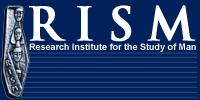Records of the Study of the Aspirations of Youth in a Developing Society (The Trinidad Study)
Call Number
Date
Creator
Extent
Language of Materials
Abstract
This collection represents materials relating to The Study of the Aspirations of Youth in a Developing Society (The Trinidad Study), which was undertaken by the Research Institute for the Study of Man with the participation of the Ministry of Culture and the Central Statistical Office of Trinidad and Tobago. The study was conducted in two parts in the years 1957 and 1961, with the aim of understanding how youth perceived the changing social, political, and economic issues facing Trinidad and Tobago as a developing nation in the Caribbean. The collection includes background research, surveys, and data collected by researchers and drafts of the final published report.
Historical/Biographical Note
Like much of the Caribbean, the island of Trinidad endured tremendous economic, social, and political transformations during the period in which this study was conducted. The years leading up to independence from the British Crown in 1962 saw rapid changes in the areas of race relations, family structure, social value systems, and the economic base of the islands as the plantation-based system was supplanted by rapid modernization. In the Trinidad Study, researchers were most interested in documenting youth perceptions of these changes.
The study was designed to capture these changes through a multi-disciplinary approach that included anthropological, sociological and psychological methodologies, and began as a one-time survey of over 800 upper-level secondary students of all social classes and races from over 30 schools across the island. Assisted by the Ministry of Culture and the Central Statistical Office of Trinidad and Tobago, RISM researchers were given access to schools for a two-part survey of randomly selected students. In the first portion of the survey, students were asked to write an autobiographical essay discussing their plans and desires for the future to the year 2000. In the second portion they were asked to complete a questionnaire in which they addressed inquiries into their ethnic identification, class, age, and sex. Self-identifying answers to these questions were cross-referenced by surveyors against government records in order to verify responses. In addition, the student questionnaire included free association, fill-in-the-blank statements intended to gauge youth opinion on a variety of social issues such as the place of women in public life, the likelihood of greater racial harmony within Trinidad, the future economic conditions of the island, education, and social mobility.
Given post-1957 political developments toward independence, RISM researchers decided to undertake a follow-up survey. The 1961 survey was substantially smaller in scope, including approximately 200 male students from two Catholic schools. Self-reported data such as ethnic identity were not verified by researchers. The survey was conducted by school administrators rather than RISM researchers. The results of both surveys appeared in two books and one article published between 1962 and 1969. These final reports are not part of the collection.
Sources:
Rubin, Vera. "Culture, Politics, and Race Relations." Social and Economic Studies 11:4 (1962).Rubin, Vera, and Marisa Zavalloni. We Wish to Be Looked Upon: A Study of the Aspirations of Youth in a Developing Society. New York: Teachers College Press, 1969.Zavalloni, Marisa. Adolescents' Values in a Changing Society: A Study of Trinidad Youth. The Hague and Paris: Mouton & Co., 1968.
Arrangement
Folders are not arranged according to alphabetical or chronological order.
The files are grouped into six series:
- I: Code Materials
- II: Miscellaneous Materials
- III: Questionnaires
- IV: Results
- V: Statistical Data
- VI. 2017 Accretion
Scope and Content Note
The bulk of the collection is comprised of student responses to the autobiographical essay and questionnaire administered in the 1957 and 1961 surveys. The questionnaire responses were encoded, and the resulting code sheets are part of the collection as well. Also included are undated drafts of the study results.
Subjects
Organizations
Genres
People
Access Restrictions
Restrictions may apply to certain materials. For further information regarding restrictions, please contact the University Archivist.
Additionally, please note that this collection is stored offsite>, and you must contact the repository to schedule access.
Use Restrictions
Permission to publish materials must be obtained in writing from the:
New York University Archives
Bobst Library
70 Washington Square South
New York, New York 10012
Phone: 212.998.2641
Fax: 212.995.4225
E-mail: university-archives@nyu.edu
Preferred Citation
Published citations should take the following form: Identification of item, date (if known); Records of the Study of the Aspirations of Youth in a Developing Society (The Trinidad Study); RISM RG 5; box number; folder number; New York University Archives; New York University
Location of Materials
Provenance
The collection was donated to the New York University Archives by the Research Institute for the Study of Man in 2006. In 2017 a small accretion to the collection was transferred to the University Archives by the Reed Foundation; the accession number associated with this donation is 2017.021.
